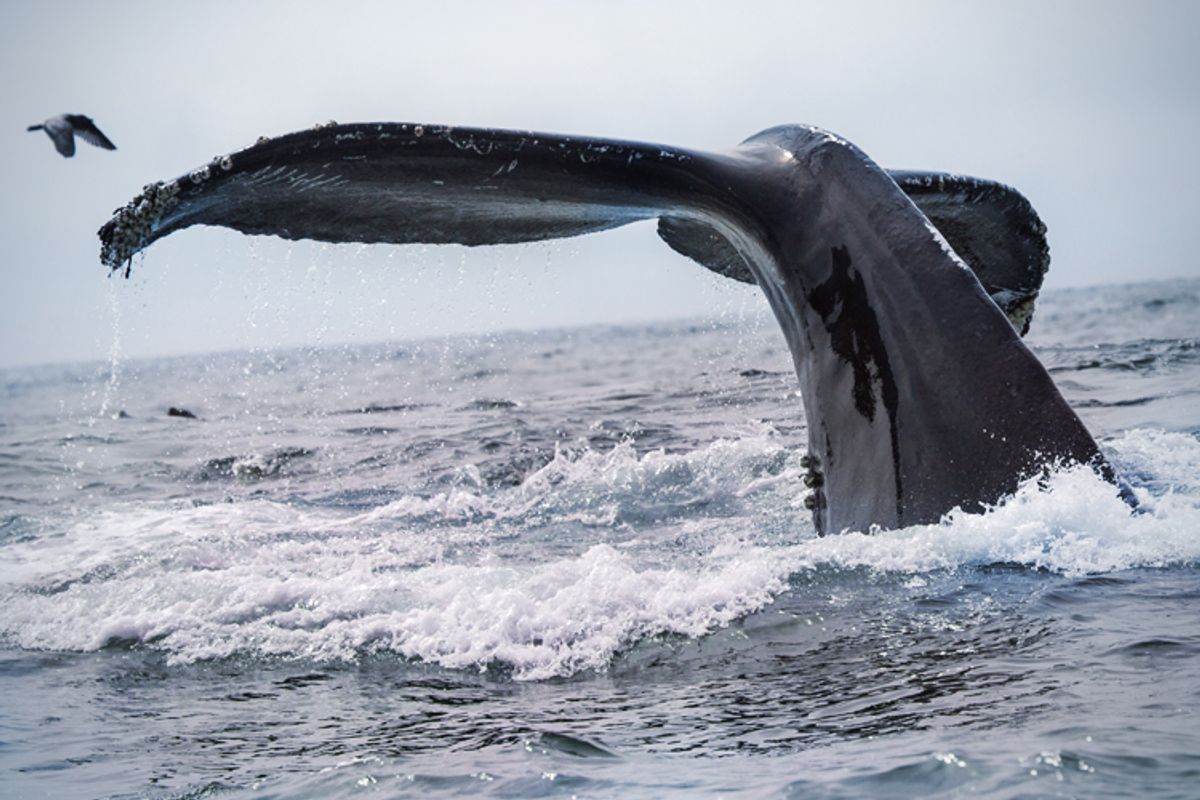A major new study published in the "Marine Fisheries Review" revealed that almost 3 million whales were killed over the past century. In terms of total biomass, this is likely the largest slaughter of any animal in human history.
"Remarkably, despite the importance of industrial whaling to several economies and more recently as a symbol of human misuse of the world's resources, there has until now been no attempt to estimate the total catch for the 20th century," reads the study.
Robert Rocha, director of science at the New Bedford Whaling Museum in Massachusetts and co-author of the study said: "When we started adding it all up, it was astonishing."
Not only did the researchers attempt to estimate the total loss of cetaceans, they also described the rise of the whaling industry and tracked public opinion surrounding the slaughter of the marine mammal.
The Huffington Post's James Cave reports on the study's findings:
Using current data from the International Whaling Commission, along with data from the USSR (which hunted whales illegally for 30 years) the researchers found that 276,442 whales were killed in the North Atlantic, 563,696 in the North Pacific and 2,053,956 in the Southern Hemisphere.
Researchers only counted whales killed industrially and found the numbers peaked in the 1960s and 1970s. (The number of whales killed for sustenance by native communities was a negligible amount in comparison.) Amazingly, the number of sperm whales killed between 1900 and 1962 was the same number of sperm whaleskilled in all of the 18th and 19th centuries combined. That record was then repeated in the decade spanning 1962 and 1972.
In an interview with NBC News, Dr. Howard Rosenbaum, director of the Wildlife Conservation Society's Ocean Giants Program said that the number was "likely an underestimate."
"The question is, given the state of today's oceans and the status of some whales, can depleted populations recover to their pre-whaling historical levels?" he continued. "The paper clearly demonstrates what whaling did to a number of whale populations and species, some on the brink of extinction. Why would we want to turn back to that world? Whales are some of the most iconic animals on the planet."

Shares